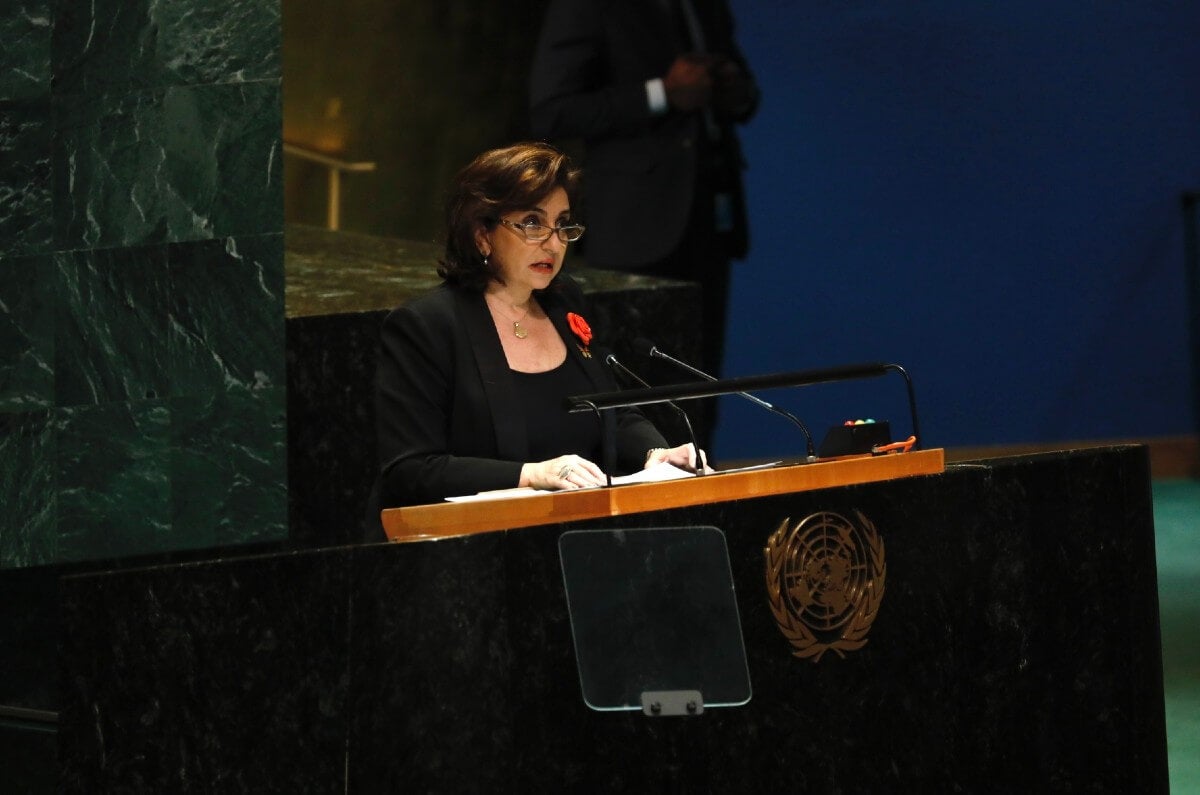Statement of the United Nations Secretary-General on the International Day of Solidarity with the Palestinian People 2024; November 29th.
Every year on this day, the international community stands in solidarity for the dignity, rights, justice and self-determination of the Palestinian people. This year’s commemoration is especially painful as those fundamental goals are as distant as they have ever been.
Nothing justifies the 7 October terror attacks by Hamas and the taking of hostages. And nothing justifies the collective punishment of the Palestinian people.
Yet, more than a year later, Gaza is in ruins, more than 43,000 Palestinians – mostly women and children – have been reportedly killed, and the humanitarian crisis is getting worse by the day. This is appalling and inexcusable.
Meanwhile, in the occupied West Bank, including East Jerusalem, Israeli military operations, settlement expansion, evictions, demolitions, settler violence and threats of annexation are inflicting further pain and injustice.
It is past time for an immediate ceasefire and the unconditional release of all hostages; an end to the unlawful occupation of the Palestinian Territory – as confirmed by the International Court of Justice and the General Assembly; and irreversible progress towards a two-State solution, in line with international law and relevant UN resolutions – with Israel and Palestine living side by side in peace and security, and Jerusalem as the capital of both States.
As a matter of urgency, I appeal for full support of lifesaving humanitarian relief for the Palestinian people – in particular through the work of UNRWA, which represents an irreplaceable lifeline for millions of Palestinians.
The United Nations will continue to stand in solidarity with the Palestinian people and their inalienable rights to live in peace, security and dignity.
EVENTS: Various events are organized worldwide, including meetings, cultural performances, and educational forums, to promote dialogue and understanding, fostering international support for the Palestinian cause.
On Friday; November 29th, the UN Geneva will host an event to commemorate the International Day of Solidarity with the Palestinian People at the Palais des Nations, in accordance with General Assembly resolution 32/40B of 2 December 1977.
Order of Speakers:
1. Introduction by Ms. Tatiana Valovaya, Director-General of the United Nations Office at Geneva
2. Statement for the Day by Mr. António Guterres, Secretary-General of the United Nations,
read out by the Secretary-General's representative, Director-General Ms. Tatiana Valovaya
3. Representative of the Committee on the Exercise of the Inalienable Rights of the Palestinian People
H.E. Ms. Julia Imene-Chanduru, Ambassador, Permanent Representative of the Republic of Namibia to the United Nations Office and other international organizations in Geneva
4. Representative of the Special Committee to Investigate Israeli Practices Affecting the Human Rights of the Palestinian People and Other Arabs of the Occupied Territories H.E. Ms. Himalee Subhashini Arunatilaka, Ambassador, Permanent Representative of the Democratic Socialist Republic of Sri Lanka to the United Nations Office and other international organizations in Geneva
5. Representative of the League of Arab States H.E. Mr. Hichem Bayoudh, Ambassador, Permanent Observer of the League of Arab States to the United Nations Office and other international organizations in Geneva
6. Representative of the Organization of Islamic Cooperation Mr. Bader Al-Mutairi, Deputy Permanent Observer, Chargé d'affaires a.i. of the Organization of Islamic Cooperation to the United Nations Office and other international organizations in Geneva
7. Representative of the Non-Aligned Movement H.E. Mr. Marcel Robert Tibaleka, Ambassador, Permanent Representative of Uganda to the United Nations Office and other international organizations in Geneva
8. Representative of the African Union H.E. Mr. Amr Abdellatif Aboualatta, Ambassador, Permanent Observer of the African Union to the United Nations Office and other international organizations in Geneva
9. Representative of the Non-Governmental Organizations accredited to the Committee on the Exercise of the Inalienable Rights of the Palestinian People – Ms. Yvonne Schupbach, World YWCA Board Member
10. Representative of the State of Palestine H.E. Mr. Ibrahim Khraishi, Ambassador Extraordinary and Plenipotentiary, Permanent Observer of the State of Palestine to the United Nations Office and other international organizations in Geneva
11. Messages: Announcement of messages or statements for the Day received from Heads of State or Government























